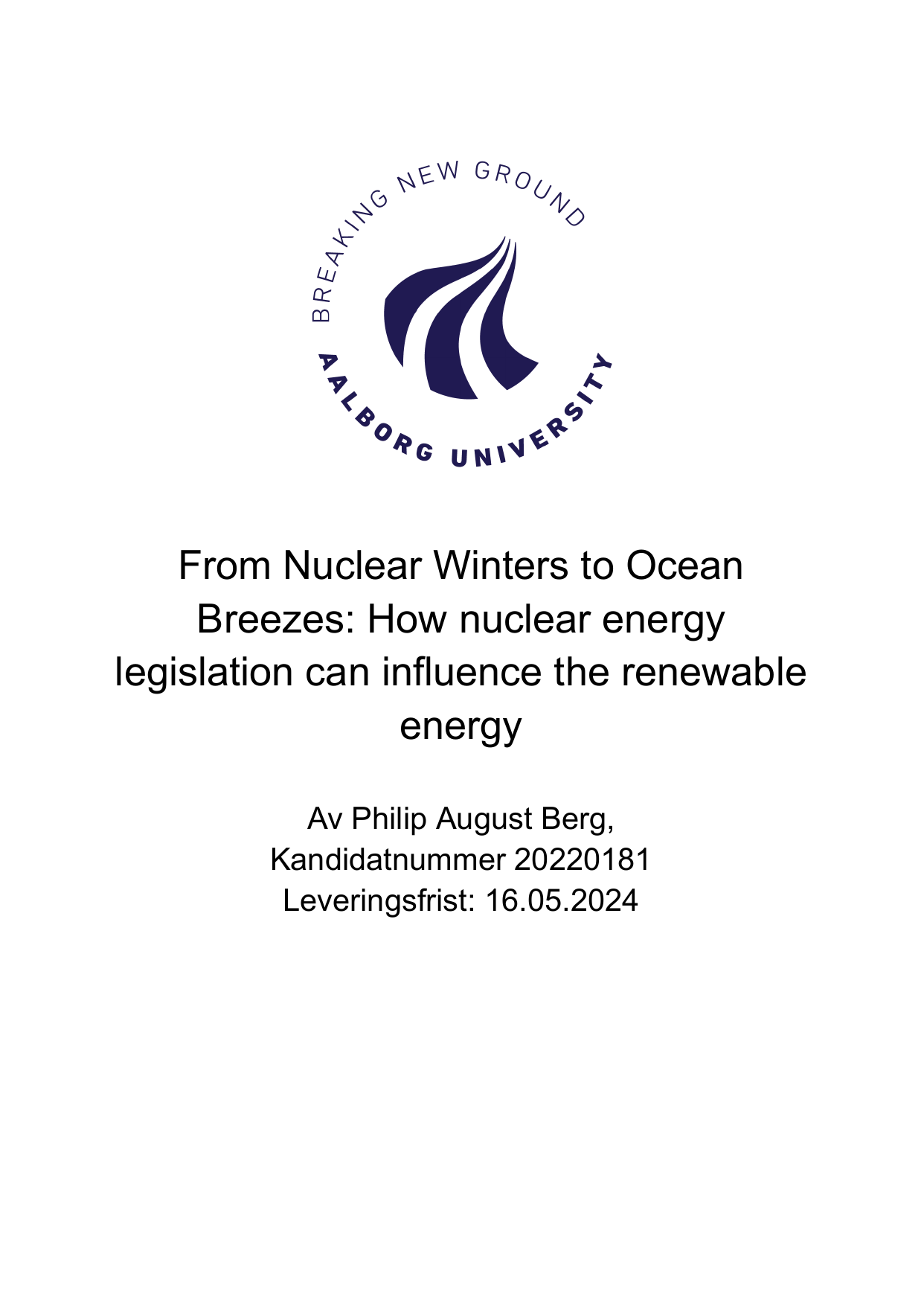
From Nuclear Winters to Ocean Breezes: How nuclear energy legislation can influence the renewable energy
Author
Term
4. term
Education
Publication year
2016
Submitted on
2024-05-16
Pages
36
Abstract
This paper explores the complex interplay between nuclear energy legislation and green energy policies across Germany, Norway, and the United Kingdom. Each country presents a unique legal and regulatory approach shaped by historical developments, societal attitudes, and technological advancements. Germany's aggressive phase-out of nuclear energy, influenced by public opposition and environmental advocacy, contrasts sharply with Norway's cautious and minimalistic nuclear approach due to its abundant renewable resources. The United Kingdom's pragmatic yet robust regulatory framework highlights the influence of international treaties and domestic safety concerns. The thesis analyzes these diverse strategies through the lens of international regulatory bodies like the International Atomic Energy Agency (IAEA) and the European Atomic Energy Community (Euratom), emphasizing their role in shaping national policies and fostering international cooperation. The comparative analysis seeks to understand how historical nuclear legislation can inform and guide current and future green energy initiatives, proposing that lessons from nuclear policy can enhance the effectiveness and societal acceptance of green energy solutions. The findings suggest that while nuclear energy laws have been pivotal in managing nuclear risks, they also offer valuable insights for developing comprehensive green energy laws that balance safety, sustainability, and public acceptance. The paper did not find any clear lessons of how nuclear legislation directly might pave the way for net-zero emission energy production. The transition from nuclear to renewable energy sources, especially under the frameworks set by international accords like the Paris Agreement, highlights the need for adaptable and forward-looking international organizations that can meet global sustainability goals.
Documents
